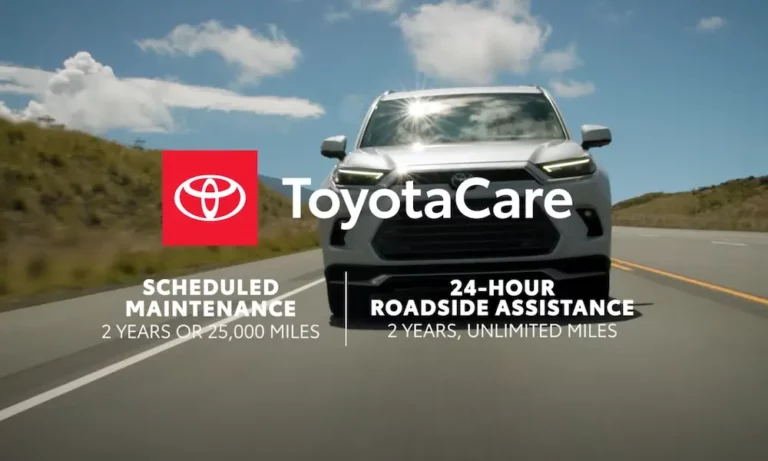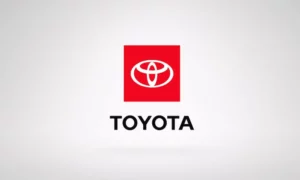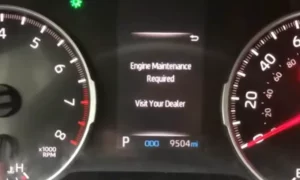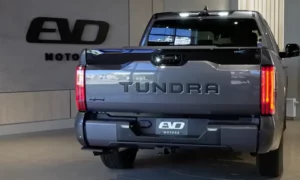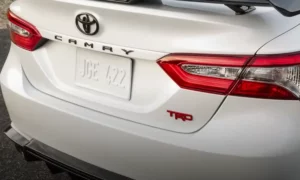When your shiny new Toyota’s factory warranty approaches its expiration date, you’ll likely face the extended warranty question. That dealership finance manager will slide a glossy brochure across the desk with plans ranging from $600 to $4,000. But is that extra protection really worth your hard-earned cash? Let’s cut through the sales pitch and break down what you need to know.
What Toyota’s Extended Warranty Actually Covers
Toyota calls their extended warranty the “Extra Care Protection” (ECP) plan. Unlike the vague promises you might hear in the showroom, the coverage is quite specific.
The Three Protection Plans Explained
Toyota offers three distinct tiers:
Platinum Protection: This is the comprehensive option covering nearly everything except wear-and-tear items like brake pads and wiper blades. It includes those pricey electronic systems, hybrid components, and infotainment features that can cause headaches down the road.
Gold Protection: A step down from Platinum, covering major mechanical systems like the engine, transmission, steering, and electrical components, but skipping some of the more advanced electronics and luxury features.
Powertrain Protection: The basic option that only covers the engine, transmission, and drivetrain components. It’s the cheapest but offers the least protection.
All Toyota extended warranties come with these additional perks:
- 24/7 roadside assistance
- Rental car reimbursement ($35-$50 per day)
- Trip interruption benefits ($50-$100 daily for lodging)
The catch? Repairs must be performed at Toyota dealerships using genuine Toyota parts. Great for quality, but limiting if you prefer your local mechanic.
Eligibility Requirements You Should Know
You can purchase ECP for new vehicles any time before the factory warranty expires (typically 3 years/36,000 miles). For used Toyotas, you can buy coverage if your vehicle is up to 9 years old with fewer than 150,000 miles.
Coverage terms extend up to 10 years/125,000 miles for new cars and 5 years/60,000 miles for used models. Plans are transferable if you sell your Toyota, potentially boosting its resale value.
The True Cost of Toyota Extended Warranties
Let’s talk dollars and cents—what you’ll actually pay for this extra protection.
What You’ll Pay (And Why It Varies)
Toyota extended warranties range from $600 to $4,000, with the average cost around $1,792. Several factors influence this significant price range:
- Your Toyota’s age and mileage: Older cars with more miles will cost more to cover.
- Coverage level: Expect to pay about 30% more for Platinum versus Powertrain protection.
- Dealer markup: Dealerships often add substantial markups to warranty pricing.
For context, a 2021 Toyota Camry with 30,000 miles might be quoted around $2,604 for Gold coverage and $2,936 for Platinum protection.
Toyota Repairs vs. Warranty Cost
While Toyotas are known for reliability, understanding potential repair costs helps assess warranty value:
| Repair | Typical Cost |
|---|---|
| Engine replacement | $4,000-$8,000 |
| Transmission rebuild | $3,000-$5,000 |
| Hybrid battery replacement | $2,000-$4,000 |
| Infotainment system repair | $1,000+ |
| Inverter replacement (hybrid) | $1,500-$3,000 |
A single major repair could exceed your warranty’s cost, making it worthwhile. But will you actually face these expenses? That’s where Toyota’s reliability comes into play.
Toyota Reliability: Do You Even Need Extra Protection?
Toyota has built its reputation on making cars that last. But exactly how reliable are they?
Why Toyotas Break Less Often
Toyota consistently ranks among the most reliable automotive brands. Models like the Corolla and Camry regularly exceed 200,000 miles with basic maintenance. This exceptional durability is why Toyota can offer a relatively standard factory warranty of 3-year/36,000-mile bumper-to-bumper and 5-year/60,000-mile powertrain coverage.
Where Factory Coverage Falls Short
Despite their reliability, modern Toyotas incorporate complex technology that can be expensive to repair:
- Hybrid systems: Components like inverters can fail after 8+ years, costing thousands.
- Advanced electronics: Touchscreen malfunctions, sensor failures, and computer issues become more common as vehicles age.
- Safety systems: Features like adaptive cruise control rely on expensive sensors and cameras.
These are precisely the areas where a Platinum extended warranty offers its greatest value, covering components that most third-party warranties exclude.
Toyota vs. Third-Party Extended Warranties
Toyota isn’t your only option for extended coverage. Companies like Endurance and CARCHEX offer competing plans with different advantages.
How Alternative Providers Compare
Third-party warranties have some clear differences:
- Coverage limits: Some third-party providers offer coverage up to 200,000 miles—well beyond Toyota’s 125,000-mile maximum.
- Cost structure: Many third-party warranties offer monthly payment plans averaging $153-$170, which may be more manageable than Toyota’s lump-sum approach.
- Repair flexibility: Unlike Toyota’s dealer-only policy, third-party warranties typically allow repairs at any ASE-certified shop.
The downside? Third-party providers often exclude OEM parts or have specific exclusions for hybrid components—a significant concern for Prius, RAV4 Hybrid, and other Toyota hybrid owners.
Is a Toyota Extended Warranty Right for You?
The warranty value equation changes dramatically based on how you use and plan to keep your Toyota.
Your Ownership Timeline Matters
If you’ll keep your Toyota beyond 5-7 years, an extended warranty becomes more valuable. As vehicles age, component failures become more common—right when a warranty would kick in. But if you trade vehicles every few years, you might never benefit from the extended coverage.
Your Driving Habits Change the Equation
Put simply: how you drive affects what breaks. Consider these factors:
- Annual mileage: Driving more than 15,000 miles yearly accelerates wear and increases your risk of mechanical failures.
- Driving conditions: Stop-and-go city driving puts more stress on transmissions and braking systems than highway cruising.
- Climate extremes: Very hot or cold environments can shorten the lifespan of batteries, electronics, and cooling systems.
High-mileage drivers in challenging conditions benefit most from extended protection.
Financial Considerations
Extended warranties aren’t just about repairs—they’re about financial predictability. If an unexpected $2,000 repair would strain your budget, a warranty provides valuable peace of mind. If you have ample savings and are comfortable with repair risks, self-insuring may be more economical.
Making the Smart Choice on Toyota Extended Warranties
If you’ve read this far, you’re clearly doing your homework before making this significant decision. Here’s how to move forward strategically.
When Toyota’s Extended Warranty Makes Sense
A Toyota extended warranty is likely worth it if:
- You plan to keep your Toyota for 6+ years
- You drive more than 15,000 miles annually
- You own a hybrid or tech-heavy model
- You prefer dealer service with OEM parts
- Financial predictability is important to you
When to Skip the Extended Coverage
Consider passing on the extended warranty if:
- You rarely keep vehicles beyond 5 years
- You drive fewer than 10,000 miles annually
- You own a base-model Toyota with minimal electronics
- You have substantial savings for potential repairs
- You have trusted independent mechanics who charge less than dealers
Getting the Best Deal
If you decide an extended warranty makes sense, don’t pay the first price offered. Negotiate aggressively—dealers have significant markup on warranties. Get quotes from multiple dealers (you can buy Toyota ECP from any Toyota dealer, not just where you purchased).
Also consider timing—buying just before your factory warranty expires often results in better pricing than purchasing at the time of vehicle sale.
The Bottom Line on Toyota Extended Warranties
Toyota extended warranties aren’t for everyone, but they can provide valuable protection for the right owner. The key is matching the coverage to your specific situation rather than making a one-size-fits-all decision.
Your Toyota will likely be more reliable than most vehicles on the road. But if keeping it long-term, a strategically purchased extended warranty can transform unpredictable repair costs into manageable, planned expenses—especially for hybrid and technology-packed models where repairs are increasingly complex and expensive.
Whatever you decide, do it with clear information rather than pressure from the finance office. That’s how you make choices you won’t regret when it really matters.

